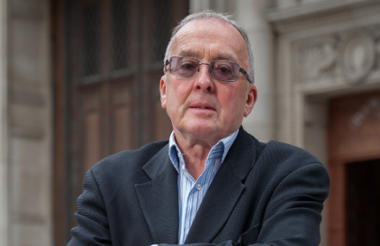Charities should avoid a “race to the bottom” on core costs by making a collective agreement to not aggressively cut them, a new report on the subject has recommended.
To The Core draws on behavioural science to understand how donors and funders’ psychology may be steering them away from funding charities in the most sustainable way. It has been published today by the think tank Charity Futures, in collaboration with the Behavioural Insights Team (BIT), a former Cabinet Office unit that was spun out as a mutual joint venture.
The report argues that it is difficult for donors to differentiate charities based on the impact they have, so charities have little choice but to appeal to them on price. This leads to charities feeling that if they do not cut core costs, they will lose funding.
Yet core costs “can be a generator of additional value”, it says. “They may allow a charity to provide training to increase volunteer skills, develop its board, or hire a digital expert. These investments can help to foster long term improvements in functioning.”
In addition to charities agreeing not to cut core costs, the report calls on umbrella bodies such as the Institute of Fundraising to conduct advertising and outreach on the importance of core costs outside of the sector, and for major funders to provide education and transparency on the subject.
‘Overhead aversion’
Elsewhere, the report cites research which found that donors were more likely to give if they were told that a charity’s overheads were covered by another funding source.
The report therefore recommends that institutional donors should offer match funding for core costs on this basis, allowing individual donors to directly fund delivery.
The report acknowledges the risk that this may perpetuate the idea that core costs are to be avoided, but says there is as yet no convincing evidence that individual donors can be persuaded to cover them.
Other recommendations in the report include:
- Charities should seek to develop a strong evidence base for the impact of their work and emphasise their impact per pound invested, including their core costs
- Funders should evaluate similar proposals in groups in order to clearly establish which option has the most impact
- Charities should communicate the average cost of delivery per person including core costs, rather than just the marginal cost
- Charities should attach a warm glow to core costs by including information in their marketing and fundraising on “identifiable helpers”: backroom staff who are integral to a charity’s function
- The sector should reframe core costs as a long-term investment that facilitates innovation and development
- Funders and charities should attach prestige to HNWIs who cover core costs
- Funders should encourage charities to merge or collaborate where appropriate in order to minimise core costs without losing the benefits that they bring
Safeguarding scandals 'could have been avoided'
Speaking about the report, Sir Stephen Bubb, director of Charity Futures, said: “Recent safeguarding scandals may have been avoided had charities’ infrastructure been adequately supported in the first instance. Now charities will struggle even more to pay their core costs.
“Charities must emphasise to the public the paramount importance of back office support to their operations as the message is not getting through. This is not an issue which will simply die down.”
Clare Delargy, a senior advisor at BIT and co-author of To The Core, said: “Despite the fact that Britain is a very generous nation, charities are under constant threat as they struggle to find a source of sustainable funding. One major cause of this uncertainty for charities is the reluctance of funders to fund charity overheads.
“This ‘overhead aversion’ isn’t rational - how much a charity spends on overheads is not a good predictor of a charity’s effectiveness.
“By better understanding donors’ behaviours and highlighting the positive impact of covering overheads, charities could unlock higher donations and improve long-term relationships with funders.”
|
Related articles












